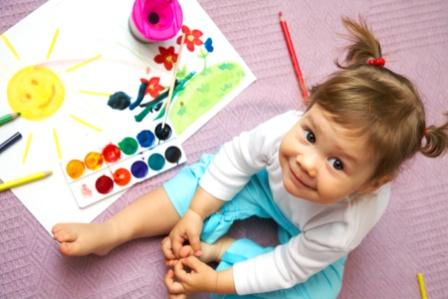As it implies, play therapy is a form of therapy that uses play as a medium for your child to express himself.
All kinds of play materials, dolls, sand, games, paper and pen and colouring books could be incorporated. Your child will be invited to draw or play, whereby he can express his inner reality (including his wishes and fears).
This form of expression serves as a powerful catharsis for any child, and also helps build resiliency.
“You can discover more about a person in an hour of play than in a year of conversation”
How does play therapy work?
Depending on the therapists and the child, your child may be directed to express something he finds worrisome (divorce, hijacking, etc.), or he will be given a choice of various materials and encouraged to make or draw anything he wants to.
In both scenarios the child is communicating in a very powerful way that words are not always enough for what is just too scary. This gives him a sense of control.
Why does play work?
- It is familiar to the child
- It is a child’s most preferred way of expressing himself
- It renders control over a child’s world
- It is joyful and thus reduces stress
- It gives energy
- It is the child’s natural language in order to communicate a wish or a need
- It offers an opportunity to gain mastery by practising new skills
- It encourages positive coping behaviour
- It enforces problem-solving skills
- It builds resiliency
At what age can my child start play therapy?
As soon as your child starts picking up toys and symbolically playing with them, he can benefit from play therapy.
Who can benefit from play therapy?
When a family or child is confronted by any of the following, therapy can be especially beneficial:
- Medical trauma
- Divorce
- Social difficulties
- Crime-related trauma
- Mood disorders
- Self-esteem difficulties
- Sensory integration difficulties
- Various changes both at home or at school
- Abuse and neglect
Article by Play Therapist, Nolene Rust ([email protected])
Latest posts by Contributor (see all)
- South African UIF backlog in a nutshell - August 4, 2014
- Parenting a Toddler: Why it helps to sometimes be silly - August 4, 2014
- ADHD and your Toddler: Facts and Treatment - August 1, 2014
-
No Comments" href="https://all4baby.co.za/toddlers-1-2-years/toddler-issues/1534/adhd-toddler-facts-treatment/">

ADHD and your Toddler: Facts and Treatment
-
No Comments" href="https://all4baby.co.za/toddlers-1-2-years/toddler-issues/1495/playground-politics-will-teach-toddler-problem-solver/">

Playground politics will teach your toddler to be a problem solver
-
No Comments" href="https://all4baby.co.za/toddlers-1-2-years/parenting-a-toddler/1441/video-much-toddler-sleeping/">

Video: How much should your toddler be sleeping?
-
No Comments" href="https://all4baby.co.za/toddlers-1-2-years/parenting-a-toddler/1347/consistency-key-toddlers-bedtime-routine/">

Consistency is key to your toddler’s bedtime routine


 Saving...
Saving...